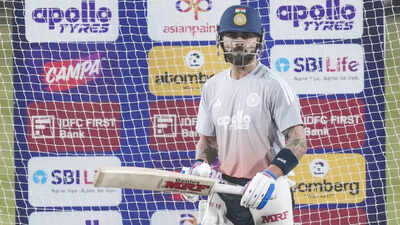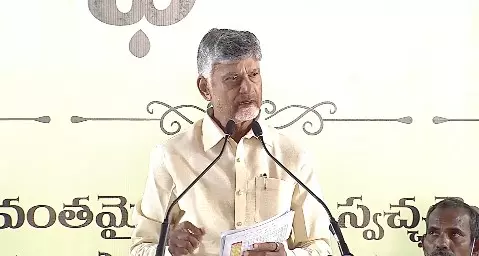With Jalen Hurts and the Philadelphia Eagles getting hammered 42-19 at home against the San Francisco 49ers, a high-level NFL agent with a few lucrative quarterback contracts on his resumé saw a winner that wasn’t even on the field Sunday.
“Good day for Dak Prescott,” he texted.
As much as it could have been a reference to the Dallas Cowboys pulling a little closer to their NFC East rivals in the standings, it was really a text about future contract negotiations. The Cowboys and Eagles will play each other next week in Dallas, just as Hurts and Prescott creep a little closer to each other in an MVP race that the Eagles quarterback has led much of this season. But coming into the home stretch, it’s Prescott who is trending upward, playing arguably the best football of his career and emerging as a fast-closing No. 2 to Hurts in the betting odds for NFL MVP.
If that momentum continues, it’s going to weigh significantly for the Cowboys at the negotiating table. In a scenario that has given Prescott all the leverage in the world — with a contract that expires after the 2024 season and includes no-trade and no-tag clauses — he’s now touching his ceiling on the field, if not raising it. And the result is the definition of perfect timing for an NFL player.
Prescott is playing at an MVP level. In order to get extensions done with other core players, the Cowboys need to ink him to a contract extension in the offseason to lower his $59.45 million cap charge. And by staying patient and not pursuing an extension last offseason, Prescott allowed four other massively significant quarterback contract extensions to get nailed down: Hurts; Lamar Jackson with the Baltimore Ravens; Justin Herbert with the Los Angeles Chargers; and Joe Burrow with the Cincinnati Bengals.
That means when the offseason begins in a few months, the two biggest quarterback negotiations on deck will be Prescott and the Jacksonville Jaguars’ Trevor Lawrence. If Prescott is coming off an MVP season — and if the Cowboys have some accompanying playoff success — it could be the most perfect quarterback contract storm since Joe Flacco entered extension negotiations with the Ravens after winning a Super Bowl.
That lends some context to why Prescott’s camp was very casual about an extension last offseason. While the outside world wondered why the Cowboys weren’t aggressively pushing the need to get a deal done last spring, knowing how much leverage he’d have in 2024, Prescott’s camp was projecting a singular message of we’re not worried about it … it will get done when it’s time to get it done. Now that time is fast-approaching, and their client is re-casting himself among the league’s quarterback elites. A tier that was once hotly debated when it came to Prescott’s inclusion, but now seeing doubters dwindle by the week — to the point that almost everyone in the agent community agrees that a record deal seems inevitable.
Asked if Prescott’s next deal will likely make him the highest-paid player in the NFL next offseason, another high-level agent replied: “Yep. Maybe it shouldn’t, but it will.”
Therein lies the cap-squeezing quandary for the Cowboys that is shaping up. On the upside, they have a quarterback who is playing well enough to justify MVP talk and the significant salary that comes with it. On the downside? They have a quarterback who is playing well enough to justify MVP talk and the significant salary that comes with it — and they’ve also given him every ace in the negotiating deck by no longer having an ability to franchise tag him or trade him.
Unless he gives Dallas a discount, this is how Prescott is going to end up signing the biggest deal in NFL history next offseason — with an annual average value that will top Burrow’s $55 million per season. He’s going to do it by having leverage on the field and off, leaving the Cowboys with the double-edged sword of having a top-end quarterback who requires top-end market compensation.
For many teams, that wouldn’t be a worry. Unfortunately for Dallas, it also has other significant bags of money to dole out across the roster. Edge rusher Micah Parsons has an extension window that opens next offseason, too. And he is going to command a record-setting deal on defense — likely more than the $34 million annual average salary of the 49ers’ Nick Bosa — that will only get more expensive as time goes on. The same goes for wideout CeeDee Lamb, who has developed into an All -Pro receiver whose next deal will slot in the same neighborhood as the Miami Dolphins’ Tyreek Hill, Las Vegas Raiders’ Davante Adams and Eagles’ A.J. Brown. Think: a floor of $25 million per season, and a ceiling that could make him the highest-paid wideout in the NFL (north of $30 million per).
Barring injury or some kind of playoff collapse that leads ownership to dig heels in bitter negotiations, it’s very realistic that the combined average annual salaries doled out to Prescott, Parsons and Lamb will be somewhere in the neighborhood of $110 to $120 million per season once all three have signed extensions. To put that in perspective, the 2023 NFL salary cap is a shade under $225 million. Next season, it is expected to fall somewhere around $240 to $245 million. Even if the Cowboys catch some breaks in negotiations or cap escalation, it’s very realistic that 35 to 40 percent of the team’s cap will be invested into three players … with another 50 needed to fill out the 53-man roster.
That’s something to keep in mind for the Cowboys in the coming weeks and months, not to mention amid the MVP and playoff races. Prescott may finally give Dallas everything it was looking for — right at the very moment the franchise will be expected to reciprocate at a historic level.





